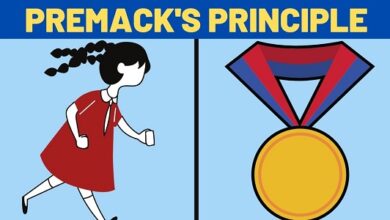Costochondritis and anxiety
The experiences we go through often have extremely powerful effects on the body. Faced with the adversities that occur in everyday life, conditions that affect the body and are confused with bodily discomforts may arise. When this happens, lingering questions may arise, such as, for example, can bodily pain have a biological basis? Why do I feel pain if there is no organic origin? Although medicine does not give the answer that one would initially expect to these questions, the truth is that some adverse events that have consequences for our mental health can occur. In this sense, there is a type of malaise directly related to mental health that affects a specific sector of the human body: costochondritis. In this article we will provide you the information about the Costochondritis and anxiety.
What is Anxiety Costochondritis?
Anxiety costochondritis or Tietze syndrome corresponds to a type of disease that affects the chest and that can spread both on the back and on the chest of a person. Unlike a medical condition of biological origin, anxiety costochondritis is linked to factors that cause stress , nervousness or other emotions that give rise to this type of condition.
One of the qualities that stands out in this picture is the intensity of the symptoms, which can trigger serious complications in the development of daily activities.
Symptoms of Anxiety Costochondritis
This condition presents some signs that can be reflected in a person’s actions, behaviors and emotions. Next, we will see the symptoms of costochondritis due to anxiety:
- Sharp pains in the chest .
- Physical discomfort after exposure to moments of anxiety, stress, nervousness or anger.
- Chest tightness. Here you will find more information about Anxiety chest pain: symptoms, causes and treatment.
- Burning .
- Numbness.
- Muscle tension .
- Muscle contractions.
Despite having some of the symptoms described, it is important to clarify that the isolated presence of any of them does not necessarily represent a condition of costochondritis due to anxiety. Therefore, it is essential that the diagnosis is made by a professional specializing in mental health.
Causes of Anxiety Costochondritis
The origin of a problem is a fundamental aspect to detect possible complications. It is fundamental to know this information in order to have tools that allow its elaboration.
Next, we will show you the possible causes of costochondritis due to anxiety:
- Injuries : Injuries caused by blows can have a negative effect on physical and mental health. Among the most common situations are traffic accidents or sports collisions, among others.
- Respiratory diseases : bacterial and viral infections cause a decrease in the defenses of the immune system. When this occurs, the excitement that takes place in the central nervous system results in high levels of anxiety that affect the person.
- Stress : everyday moments experienced with stress can be manifested through bodily conditions such as costochondritis caused by anxiety.
If you want to know more about it, in the following article you will find more information about the Effects of anxiety on the body.
How long does costochondritis from anxiety last?
Although it is not possible to determine a single duration of the symptoms involved, there are some criteria that allow an estimated period of time to be located. Usually, in mild cases, anxiety costochondritis usually goes away after a few days .
However, it is necessary to take into account the particularity of each case to offer follow-up according to the state and intensity of the person’s symptoms. In more serious situations, it may be necessary to address the condition comprehensively because the duration will be longer.
Anxiety costochondritis treatment
Despite the complications that anxiety costochondritis can trigger, there are some effective methods that allow you to improve your physical and mental health. Below we explain the main treatments for costochondritis due to anxiety:
psychological therapy
Psychological therapy is a space that invites reflection on problematic situations based on the construction of specific tools. In this sense, there are short-term therapies that focus attention on the emotions, thoughts and behaviors that cause the symptoms of this condition with the aim of modifying habits and beliefs to reduce anxiety.
On the other hand, long-term therapies try to locate the origin of conflicts through the memory of traumatic childhood situations. From this, it is possible to adopt other solutions in the face of anxiety or stress situations.
psychiatric medication
In cases that exhibit considerable severity that jeopardizes ordinary activities, the administration of anxiolytics may be a viable option. These drugs act on brain chemistry and produce body relaxation.
However, it is essential that this treatment is supervised by a mental health professional.




